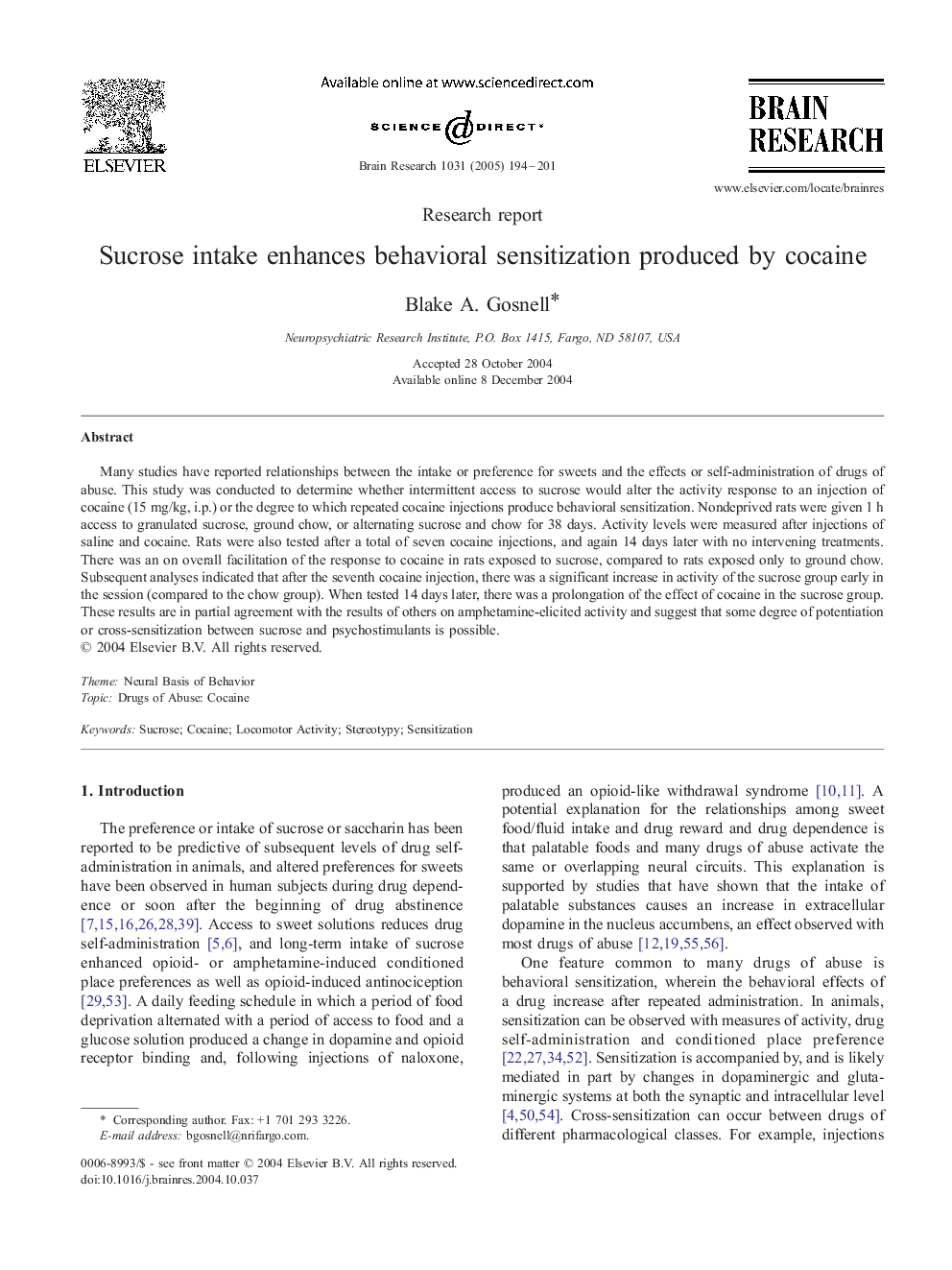| Article ID | Journal | Published Year | Pages | File Type |
|---|---|---|---|---|
| 9416850 | Brain Research | 2005 | 8 Pages |
Abstract
Many studies have reported relationships between the intake or preference for sweets and the effects or self-administration of drugs of abuse. This study was conducted to determine whether intermittent access to sucrose would alter the activity response to an injection of cocaine (15 mg/kg, i.p.) or the degree to which repeated cocaine injections produce behavioral sensitization. Nondeprived rats were given 1 h access to granulated sucrose, ground chow, or alternating sucrose and chow for 38 days. Activity levels were measured after injections of saline and cocaine. Rats were also tested after a total of seven cocaine injections, and again 14 days later with no intervening treatments. There was an on overall facilitation of the response to cocaine in rats exposed to sucrose, compared to rats exposed only to ground chow. Subsequent analyses indicated that after the seventh cocaine injection, there was a significant increase in activity of the sucrose group early in the session (compared to the chow group). When tested 14 days later, there was a prolongation of the effect of cocaine in the sucrose group. These results are in partial agreement with the results of others on amphetamine-elicited activity and suggest that some degree of potentiation or cross-sensitization between sucrose and psychostimulants is possible.
Keywords
Related Topics
Life Sciences
Neuroscience
Neuroscience (General)
Authors
Blake A. Gosnell,
